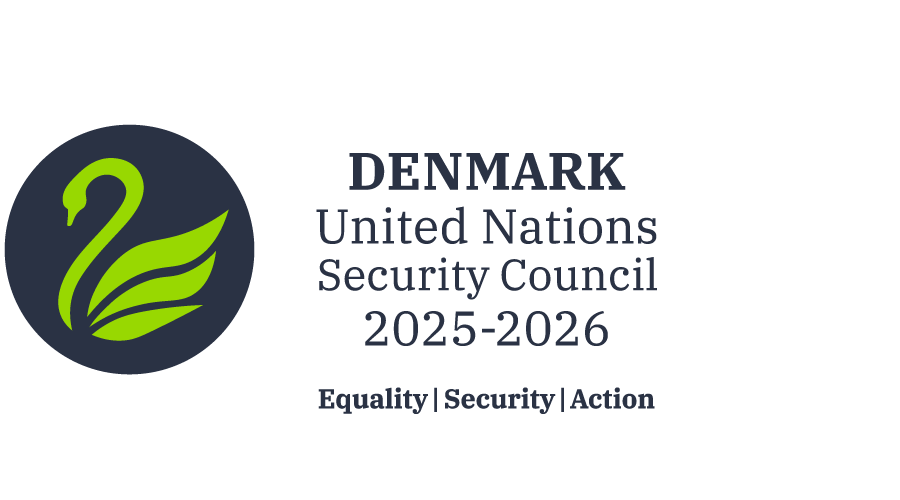Nordic Statement in the GA debate on the use of the Veto in the UNSC with regards to Syria
Thank you
Mr. President.
I have the honour to deliver this statement on behalf of the Nordic countries –
Finland, Iceland, Norway, Sweden, and my own country, Denmark.
Although we regret the need to convene another debate about the use of a veto
in the Security Council so soon after the latest one, we welcome this
opportunity to discuss the recent use of veto by Russia.
We underline the significance of the adoption of resolution 76/262. The
adoption of the veto-initiative is an important step in making the Council more
transparent and accountable, and has paved the way for our debate today.
We – as signatories to the Charter of the UN – have entrusted the Security
Council with the responsibility to maintain international peace and security.
The use of the veto to prevent the Council from discharging its duties is a
matter of great concern – and in this case, it has forced the Security Council
to scale down life-saving humanitarian assistance to millions of vulnerable
people at a moment when it is more needed than ever before during the Syrian
conflict.
The draft resolution put forward by the penholders, Norway and Ireland,
reflected a fair and careful compromise between the views expressed during the
negotiations. And more importantly, it reflected the urgent needs of the Syrian
people, and was in line with the recommendations of the UN Secretary-General
and the humanitarian organizations operating on the ground. They have
consistently stressed the need for a predictable 12-month extension of the
mandate to allow for adequate planning and implementation of the humanitarian
response.
We deeply regret that Russia’s use of the veto forced the Security Council to
ignore these calls based on urgent humanitarian needs on the ground. It is key
that humanitarian aid reaches those in need in Syria. We must put humanitarian
needs above politics. The fact remains that there are no humanitarian grounds
to justify a veto on cross-border assistance to those in humanitarian need.
This is yet another example of the abuse of the veto by a permanent member of
the Security Council. This meeting is another opportunity to convey the urgent
need for increased restraint in the use of the veto and for more transparency
and accountability when the veto power is used. This debate provides a
much-needed occasion for Russia to explain itself and for other member states
to express their opinion on this matter.
On this note, allow me to share the viewpoints of the Nordic countries:
Mr. President,
Since the outbreak of the war in Syria in 2011, Russia has used its veto 17
times in relation to the Syrian conflict alone.
This adds woes to an already dire situation. In 2014 there were four border
crossings that helped to ensure food, water, shelter, critical medical
services, and other life-saving support for Syrians in need. Today, due to
consecutive Russian vetoes, we are down to one last lifeline through the Bab
al-Hawa crossing.
Russia’s use of the veto disregards what the Secretary-General and the humanitarian
community have called for. It undermines operational certainty and
predictability for humanitarian actors operating on the ground. And it leaves
the mandate to expire in the middle of the winter in Syria when the
humanitarian needs are most urgent.
We underline our strong expectation that the Council will deliver and renew the
mandate in January 2023 at the latest based on the humanitarian needs of the
Syrian people as outlined in the special report by the Secretary-General due in
December. Anything else would be to disregard the lives and needs of the Syrian
people and be a manifest failure by the Security Council to lift the
responsibilities that we as Member States have vested in it.
Mr. President,
In the light of yet another veto in the Council, we are once again reminded of
why reform of the Security Council is necessary. We also encourage all Member
States to support the French-Mexican initiative and the ACT Code of Conduct.
Finally, let us express our strongest possible support for the humanitarian
penholders, Norway and Ireland. Without their tireless efforts, the
cross-border humanitarian aid to Syria would have been at risk of not
continuing at all – and the consequences of such a failure by the Security
Council would have been borne by the Syrian people alone.
At a time when Russia stood isolated in the Security Council with its veto, we
are also grateful for the role played by the elected members. Without the E10’s
collective voice of conscience in the Council, there is no guarantee that an
agreement could have been found. In combination with the invaluable effort made
by Ireland and Norway, two small states elected as non-permanent members of the
Council, this only serves to once again underline the essential role that the
E10 plays in the effective functioning of the Council.
As we are now forced to already look ahead to the next renewal of the
cross-border mechanism in Syria, we hope that the General Assembly today sends
a clear signal that life-saving humanitarian assistance must not be
politicized. And it should never be made subject to a veto. Countless human
lives depend on it. And ultimately, the legitimacy of this very organization
depends on it.
Thank you.
